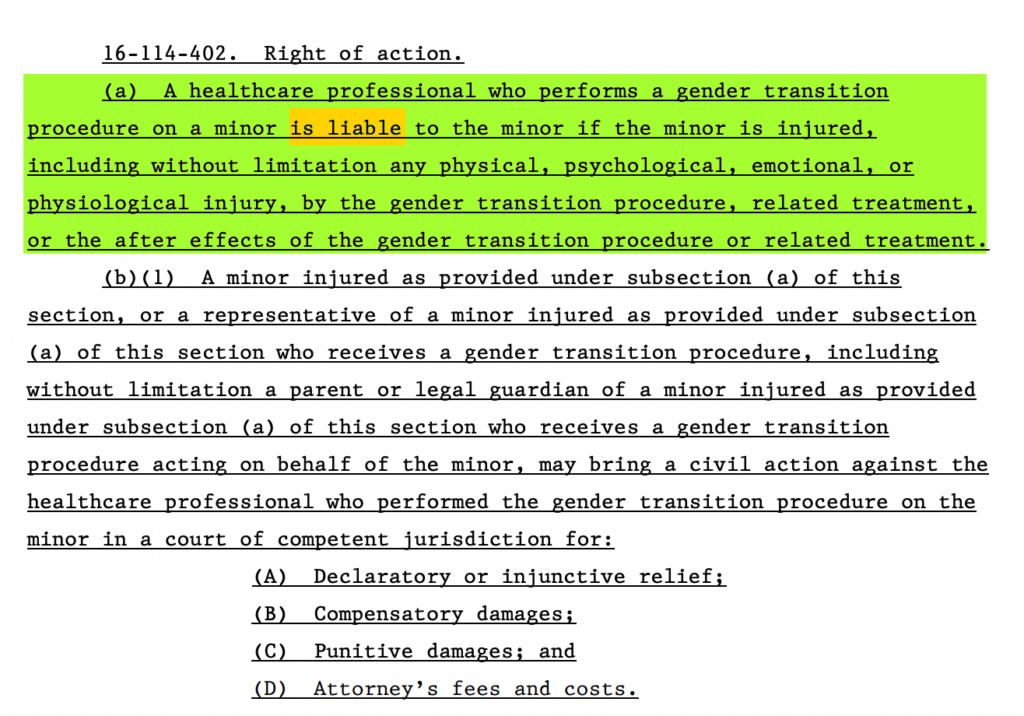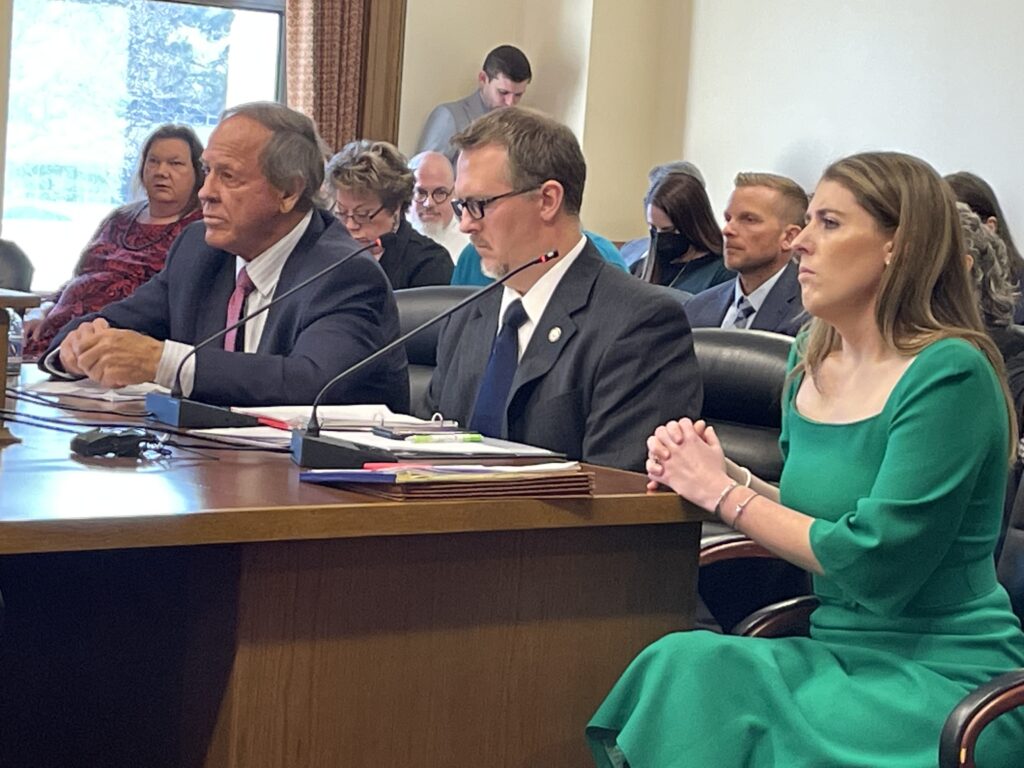- SB199 would make providers strictly liable for damages for gender-affirming youth healthcare
- Sen. Stubblefield mistakenly believes his bill provides a “cause of action” for injury, which already exists in Arkansas
- SB199 would ensure high malpractice insurance costs for physicians or the inability to obtain insurance altogether, dissuading practitioners from providing care for trans youth
- The bill has received national attention for inappropriate comments made by committee members
It’s not a requirement that judiciary committee members have a law degree, but we expect legislators to have a basic understanding of their bill and its elements. A juris doctorate or even a first-year Tort class would have helped Judiciary Chair Sen. Gary Stubblefield, who on Monday continuously mis-described his bill that would create strict liability for gender-affirming medical care.
SB199’s intent is to dissuade medical practitioners from providing gender-affirming healthcare for trans youth and is part of broader legislative attack on trans rights in Arkansas. Right now, strict liability only applies to accidental acts (i.e. non-intentional) involving “inherently dangerous” activities as determined by a court. The bill would attach “strict liability” to youth transition procedures, creating a separate liability classification from all other medical procedures. The bill also allows for any person who received treatment to sue providers for damages until age 55. Currently the statute of limitation for liability claims is two years post-treatment. Setting aside the bill’s harm to trans Arkansans and members’ bullish behavior, SB199 is problematic for additional reasons.

First, anyone that experiences negligence in Arkansas via any healthcare avenue already has a civil cause of action (AR Code § 16-114-206 (2016)). But in committee, Sen. Stubblefield repeatedly misstated that his bill would “provide a cause of action” for gender-affirming care patients to sue medical providers. Representatives from the Attorney General’s office also struggled with the bill’s details, including the impact of the bill and its intentional omission of standard of care. The AG’s office should know that this bill does not contain a standard of care provision because under SB199’s proposed statute, it would be unnecessary for a plaintiff to prove a standard of care violation. Instead, the plaintiff would simply prove the physician provided the treatment.

Second, the bill creates strict liability for gender-affirming care. Medical malpractice is pretty darn hard to prove in Arkansas, for better or for worse. Under Arkansas law, a plaintiff suing for medical malpractice has the burden of proving: 1) the standard of health care practice; 2) that the provider failed these standards; and 3) that such failure caused the plaintiff harm (AR Code § 16-114-206 (2016)). And in most cases, expert testimony is also required to prove injury. Experts who testify on behalf of a plaintiff must be certified by a judge, and the criteria for approval includes clear medical expertise and an understanding of local standards of practice. Consequently, it’s often difficult to meet these requirements for burden of proof. Stubblefield’s bill, however, would pluck gender-affirming care out of medical malpractice category and swing it to the opposite end of the liability spectrum, essentially guaranteeing anyone who sues for damages would receive them (damages = money).
SB199 would create unnecessary burdens for providers, like high premiums for medical malpractice insurance or the inability to acquire a malpractice policy altogether. The bill isn’t meant to help trans Arkansas sue negligent providers. Rather, it’s meant to dissuade provision of treatment for trans children entirely. It’s another example of the majority party’s obsession with using Arkansans to score national political points. Sen. Stubblefield should stick to legislation he actually understands.





